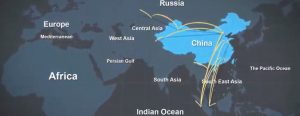Beijing made April 15 the “State Security Education Day for All People.” On that day, the CCTV had a high-profile promotion asking the general public to look for or report “spy” activities. People can report those activities via phone, online submission, mail, or directly going to corresponding government offices. The corresponding office will give out rewards, on three levels, based on the effect of the tips. The highest reward is 500,000 yuan (US $ 74,000).
An observer of Beijing’s affairs has commented that the Chinese Communist Party (CCP) has been looking for spies in the name of “state security” and the result has been that students have reported their teachers and friends have reported on each other. “The CCP faces three big conflicts: the conflicts between the officials and the general public; the conflicts among the ruling group, and the conflicts between the CCP and Western countries. These conflicts have led the CCP to a feeling of great insecurity. To secure its power, the CCP has been looking for ‘spies.’ First, it wants to identify the insiders in the CCP system who are not loyal to the CCP. Second, it wants to arrest members of the general public who are against the CCP. Third, (it wants to identify) the ‘infiltration forces’ from countries overseas.”
Source: Epoch Times, April 18, 2019
http://www.epochtimes.com/gb/19/4/18/n11195737.htm


